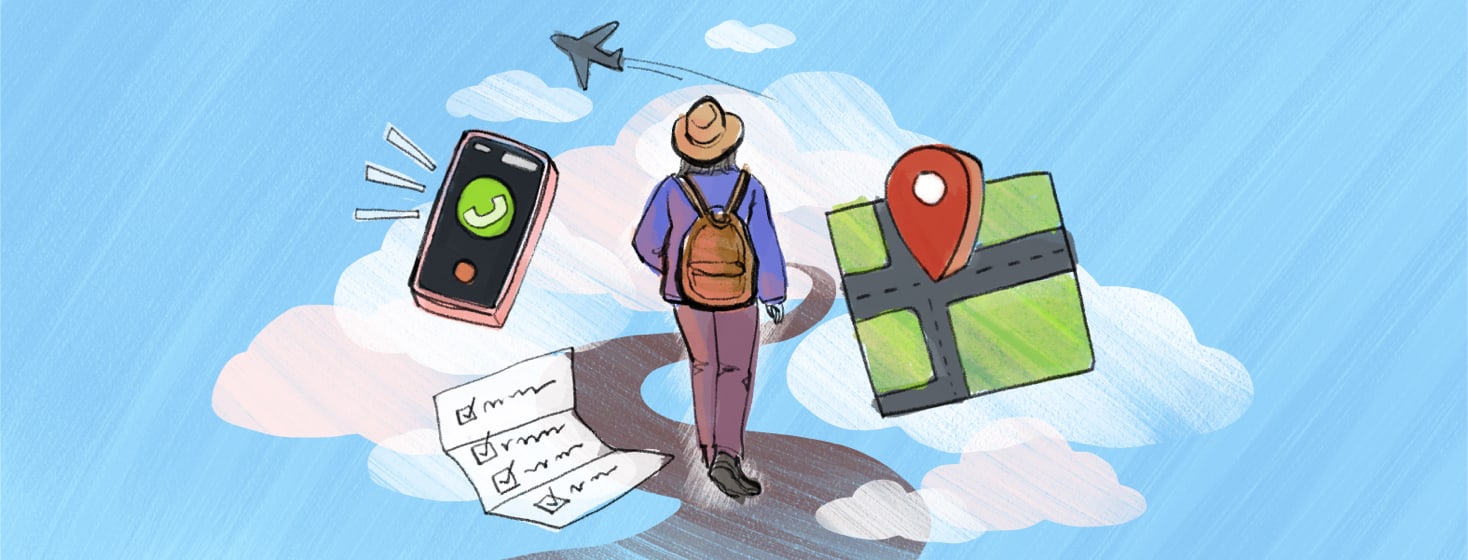Traveling Alone With Alzheimer's
It's that time of year when people will be traveling for vacations with family and friends. As a person with Alzheimer's traveling has become tricky.
If you are in the early stages of Alzheimer's and still find it comfortable to travel safely alone, just think about things that can make it easier for you. I do not travel alone as much as I used to, but when I do, I try to take as many precautions as I can.
These are some things I have found helpful.
5 tips for traveling alone with Alzheimer's
While planning your trip, have someone else help you through the process. If you do not feel comfortable making arrangements online, pick up the phone and call the airline or hotel or have someone make the reservations for you.
If you are traveling by plane, train, bus, or boat be sure you are aware of the chaos that might meet you at the airport or the terminal. If possible, have someone go with you to insure you get checked in properly. Ask ahead of time for assistance from the airport or terminal staff. For example, asking for a wheelchair or assistance getting to a gate can sometimes get you through security faster and avoid confusion with long lines. When making your reservation, try to indicate that you have a disability and may require assistance.
Have your schedule printed out so if you need to ask for additional assistance you will not have to rely on your memory. Keep a copy on your person as well as in your luggage.
What will happen when you arrive at your destination? Will someone be there to pick you up? Think about what would happen if you are late or your flight gets canceled. Who can you call to get assistance? Be sure contact information is readily available if you need it.
If you are traveling by car and using a GPS system you might also want to have written directions with contact information in case you should get lost and need to call someone. I keep something in my glove compartment of my car stating that I suffer from early signs of Alzheimer’s as well as contact information in case of an emergency. If something happens authorities will have a better understanding of the situation and be able to help in times of need.
How I have adjusted to traveling
I am at a stage now that I would not go anywhere I hadn't been before on my own. But I have run into problems going to an airport I had been to countless times before, only to get there and learn they changed gates. Or lots of construction was going on and it was so unfamiliar I was sure I had gotten off in a different city. I panicked and had to have lots of help to get to my luggage and find my ride. It was a frightening experience.
Our independence is important to us. If traveling is something you have always enjoyed doing - get assistance with planning to ensure your safety and security. I have had to make the decision many times that it was not safe for me to go somewhere on my own and that is difficult, but safety is more important.

Join the conversation